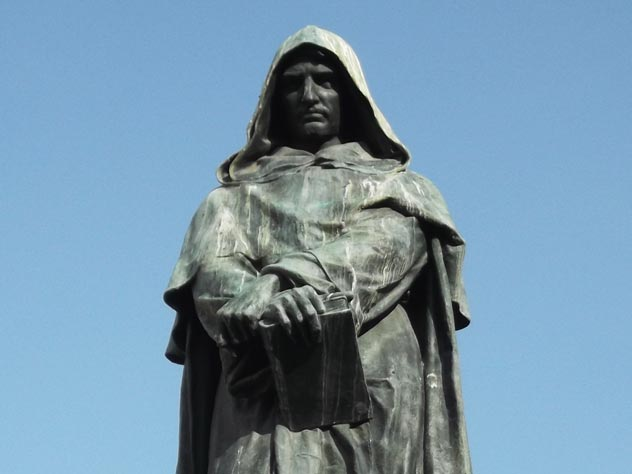Several weeks of tropical rainfall. Then a week of tropical heat. And again the rays of the sun break through heavy rain clouds, and again the air blows with pre-storm coolness. The working day is coming to an end on Tuesday, June 29th.
Two days later, a law on the termination of the moratorium on the sale of agricultural land will come into force in Ukraine, under long-time pressure by Western governments, the World Bank, and the IMF. I was born and have lived all my life in the concrete jungle of Kharkov and—probably—I will not have time to feel what is available to those who learned every day to feel a bond with the ground, barefoot from childhood. It was all the more interesting to attend the public discussion on the consequences of land reform, 'Will the market decide?' under the Kharkov Regional State Administration, that was announced by the local counter-info Internet magazine 'Assembly'.
In total, 25-30 people gathered, of which about half were journalists from Kharkov. The other half represented the once quiet and homely suburb of Olkhovka, so the meeting almost immediately turned into an action to protect this village. Those who came from other environmental initiatives stood on opposite sides, taking photos or streaming with the film crews. But then everyone came so close to each other, they got lost in one crowd.
Olkhovka is notorious for the conflict over sand mining, which has been dragging on for the third year—territory was taken and legalised through shadow schemes, with a change in its purpose, similar to the mechanisms of land privatisation in Kharkov’s central neighborhoods for building. The population's discontent is caused by the daily passage of dozens of dump trucks through the streets, destroying residential buildings and the single road to Kharkov, despite the court’s two separate decisions to organise a detour. Those who oppose it face attacks and threats that no one investigates—even without looking for suspects.

Olkhovka is not an industrial zone, Land is Ukrainian popular property, Save Lavrova gully, Defend the environment
About 200 written appeals to all rulings, from the village council to the president, remained unanswered. Control over the quarry is attributed to a deputy from the ruling party, who heads the subcommittee on mineral resources, in the parliamentary committee on environmental policy and environmental management. Therefore, Olkhovka calls this confrontation a struggle, not against a specific company that owns a quarry, but against the entire vertical of power, with its disregard for what stands in the way of profit.
The action took place without prior notice; In fact, it was a peaceful unauthorised occupation of the space in front of the building, designed to arouse fear and awe among mere mortals, with one appearance of its monumental grandeur. After about 30-40 minutes, a cop appeared from the building, much like a caricature of tsarist times. They, being the head of the institution's security, demanded that the protesters disperse, under the threat of issuing a fine. One of the residents of Olkhovka reasonably remarked that it is not a breaking of roads and bridges built from our taxes—here they will take measures according to the law without having to wait two years. Nevertheless, it seems, by that time, those who wished to speak had already managed to speak out.
What did this event show? First of all, the total organisational and moral bankruptcy of the ecological circles from among the Kharkov liberal youth, who are so fond of complaining that no one in the city wants to defend their quality of life and the environment, but did not even bother to somehow indicate their presence at the meeting, not even speaking about taking responsibility for its organising. Although what to say about the contingent, who did not even react to the beating to a pulp of one of their closest associates a month ago, except for whining on Facebook and interviews? So, if after the opening of the land market, rural communities need to really protect the common goods and their own sources of livelihood, in this matter they will have to rely only on themselves—not on hobby groups, for which eco-activism is only a form of leisure.

This is probably the most significant moment: the speaker of the community initiative group Irina Korshunova and a confused cop
The reaction of the public in the largest city’s Telegram channel also attracted attention: instead of the usual comments such as 'go to work', almost all commentators perceived the rally with sympathy, and some even called for more radical acts—from blocking the ring road to the sabotage of equipment. Although, here the question is the same: why will none of them demonstrate a personal example?
And so it is, all over the world. It is the organised communities for whom the land is not a commodity, because it does not belong to people—but people themselves belong to it—that are the main obstacle to the destruction of our planet by capitalism. The law that came into force today is a blow to this hope. But the fight for land is still ahead. Those who doubt this can watch the classic film of the same name by Dovzhenko or any Zapatista declaration from Mexico.
To be continued!
Special thanks to our patrons, John Walker, BoringAsian, Mr Jake P Walker, Joseph Sharples, Josh Stead, Dave, Bliss, Hol, Aryeh Calvin, Rylee Lawson, Meghan Morales, Kimonoko, Squee, Manic Maverick, Max Dixon, Maria Rahim, Balaclava Bandit, and Henri Affandi.
Please consider giving us your support:




